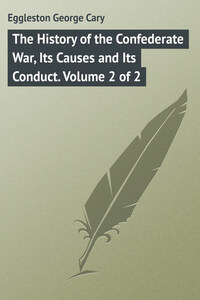CHAPTER I.
Mr. Pagebrook gets up and calls an Ancient Lawgiver
Mr. Robert Pagebrook was "blue." There was no denying the fact, and for the first time in his life he admitted it as he lay abed one September morning with his hands locked over the top of his head, while his shapely and muscular body was stretched at lazy length under a scanty covering of sheet. He was snappish too, as his faithful serving man had discovered upon knocking half an hour ago for entrance, and receiving a rather pointed and wholly unreasonable injunction to "go about his business," his sole business lying just then within the precincts of Mr. Robert Pagebrook's room, to which he was thus denied admittance. The old servant had obeyed to the best of his ability, going not about his business but away from it, wondering meanwhile what had come over the young gentleman, whom he had never found moody before.
It was clear that Mr. Robert Pagebrook's reflections were anything but pleasant as he lay there thinking, thinking, thinking – resolving not to think and straightway thinking again harder than ever. His disturbance was due to a combination of causes. His muddy boots were in full view for one thing, and he was painfully conscious that they were not likely to get themselves blacked now that he had driven old Moses away. This reminded him that he had showed temper when Moses's meek knock had disturbed him, and to show temper without proper cause he deemed a weakness. Weaknesses were his pet aversion. Weakness found little toleration with him, particularly when the weakness showed itself in his own person, out of which he had been all his life chastising such infirmities. His petulance with Moses, therefore, contributed to his annoyance, becoming an additional cause of that from which it came as an effect.
Our young gentleman acknowledged, as I have already said, that he was out of spirits, and in the very act of acknowledging it he contemned himself because of it. His sturdy manhood rebelled against its own weakness, and mocked at it, which certainly was not a very good way to cure it. He denied that there was any good excuse for his depression, and scourged himself, mentally, for giving way to it, a process which naturally enough made him give way to it all the more. It depressed him to know that he was weak enough to be depressed. To my thinking he did himself very great injustice. He was, in fact, very unreasonable with himself, and deserved to suffer the consequences. I say this frankly, being the chronicler of this young man's doings and not his apologist by any means. He certainly had good reason to be gloomy, inasmuch as he had two rather troublesome things on his hands, namely, a young man without a situation and a disappointment in love, or fancy, which is often mistaken for love. A circumstance which made the matter worse was that the young man without a situation for whose future Mr. Robert Pagebrook had to provide was Mr. Robert Pagebrook himself. This alone would not have troubled him greatly if it had not been for his other trouble; for the great hulking fellow who lay there with his hands clasped over his head "cogitating," as he would have phrased it, had too much physical force, too much of good health and consequent animal spirits, to distrust either the future or his own ability to cope with whatever difficulties it might bring with it. To men with broad chests and great brawny legs and arms like his the future has a very promising way of presenting itself. Besides, our young man knew himself well furnished for a fight with the world. He knew very well how to take care of himself. He had done farm labor as a boy during the long summer vacations, a task set him by his Virginian father, who had carried a brilliant intellect in a frail body to a western state, where he had married and died, leaving his widow this one son, for whom in his own weakness he desired nothing so much as physical strength and bodily health. The boy had grown into a sturdy youth when the mother died, leaving him with little in the way of earthly possessions except well-knit limbs, a clear, strong, active mind, and an independent, self-reliant spirit. With these he had managed to work his way through college, turning his hand to anything which would help to provide him with the necessary means – keeping books, "coaching" other students, canvassing for various things, and doing work of other sorts, caring little whether it was dignified or undignified provided it was honest and promised the desired pecuniary return. After graduation he had accepted a tutorship in the college wherein he had studied – a position which he had resigned (about a year before the time at which we find him in a fit of the blues) to take upon himself the duties of "Professor of English Language and Literature, and Adjunct Professor of Mathematics," in a little collegiate institute with big pretensions in one of the suburbs of Philadelphia. In short, he had been knocked about in the world until he had acquired considerable confidence in his ability to earn a living at almost anything he might undertake.














